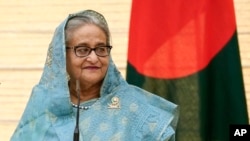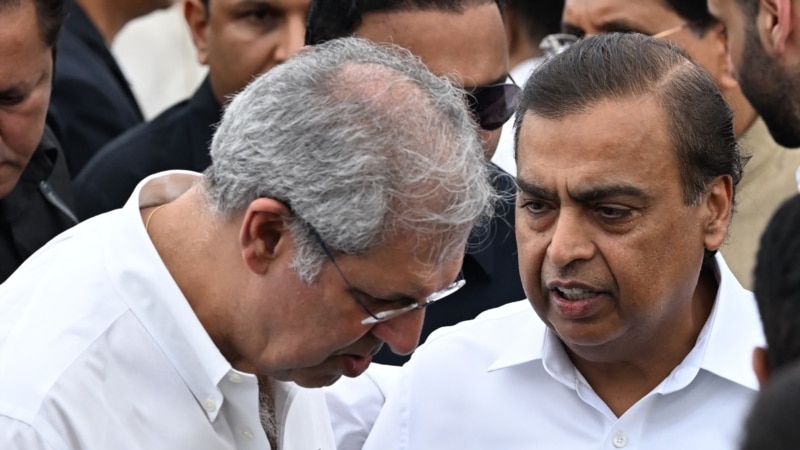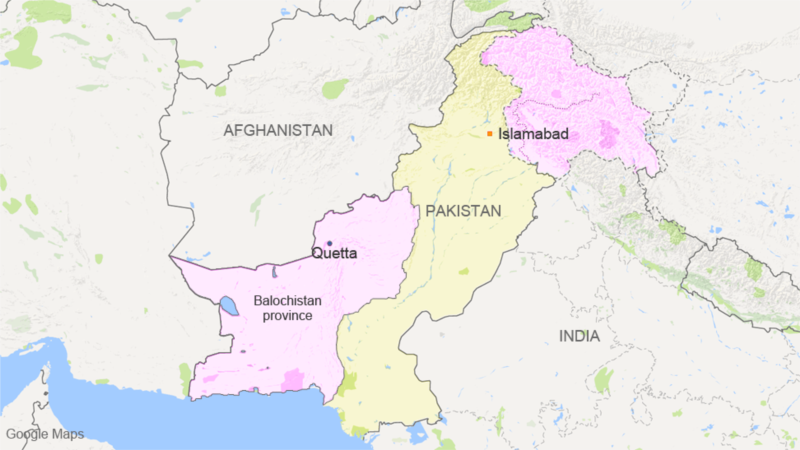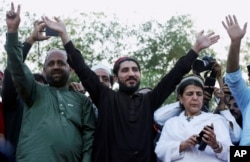Bangladesh on September 1 branded a letter by more than 170 global figures condemning “continuous judicial harassment” of Nobel laureate and microloan pioneer Muhammad Yunus, as undesirable “foreign intervention” in the country’s judicial process.
Signers of the August 27 letter include former U.S. President Barack Obama, former United Nations Secretary-General Ban Ki-Moon, former U.S. Secretary of State Hillary Clinton and more than 100 Nobel laureates.
The letter, addressed to Prime Minister Sheikh Hasina and published in the international edition of The New York Times August 31 as a full-page ad, also expressed concerns over “threats to democracy and human rights” in Bangladesh, ahead of January general elections.
Yunus, 83, is credited with lifting millions of people out of poverty through his pioneering use of microloans through Grameen Bank, which he founded in 1983 for those unable to use conventional banks. He won the Nobel Peace Prize in 2006 for his grassroots development work in Bangladesh.
Although Hasina initially praised the work of Yunus and the Grameen Bank, she changed her tune after starting to view him as a political rival.
Yunus was removed from the Grameen Bank board in 2011. Over the past few years, he has faced 166 civil suits and two criminal cases related to the business companies founded by him. In one of those cases involving the Grameen Telecom company, the anti-corruption commission charged him with money laundering. In a separate criminal case, another government agency accused him of labor law violations in the same company (Grameen Telecom).
His lawyer, Abdullah Al-Mamun, told VOA September 2 that the charges of labor law violations that have been brought against Yunus in one case by the government are civil offenses under Bangladesh’s Labour Act but that the government had filed them as a criminal case and that the trials had been “fast-tracked in such a manner that we are not being given enough time to present our arguments in the court.”
“Under such circumstances, we fear that he may be denied a fair trial,” the lawyer said.
The letter published in The New York Times noted that that the “previous two national elections [in 2024 and 2018] lacked legitimacy,” and added that it was of “utmost importance” that the upcoming national election be “free and fair.”
The letter also noted their concern about the case against Yunus.
“We respectfully ask that you immediately suspend the current judicial proceedings against Professor Yunus. …We are confident that any thorough review of the anti-corruption and labor law cases against him will result in his acquittal,” it said.
Hasina’s government has reacted sharply to the letter.
Hasina told a press briefing in Dhaka Friday that the government would not be influenced by the letter.
“The cases [against Yunus] are going on in court. The judiciary is completely independent. We have no authority to intervene in these cases. Why is this statement brought from outside the country asking us to withdraw the cases?” Hasina asked.
Hasina said that the authors of the joint letter should send their experts, including lawyers, to see for themselves why Yunus has been charged.
“I invite them here to verify the case documents and see if he has been charged falsely. I cannot understand how they want the case against him suspended by issuing such a statement,” she said.
Mohammad Ashrafuzzaman, former liaison officer of Hong Kong-based rights group Asian Legal Resource Center, said that Bangladesh’s judiciary has “failed to emerge with an image of having independence and integrity” as an institution when its recent track records are assessed carefully.
“The dissidents are regularly targeted by the Bangladesh government, and subsequently the police and judiciary act as its extended hands,” Ashrafuzzaman told VOA.
“The track records of the judiciary of Bangladesh do not match with the universal principles of justice. It utterly disregards the notion of the right to fair trial in politically motivated cases.”
Referring to a 1997 speech Hasina gave in Washington expressing Bangladesh’s pride in “the outstanding work done by Professor Muhammad Yunus and the Grameen Bank that he founded,” Badiul Alam Majumdar, founder of the pro-democracy Citizens for Good Governance said Hasina used to be an ardent supporter of Yunus.
“Some global leaders are asking to stop the judicial harassment of professor Yunus and ensure that the next general election is free and fair. As Bangladeshis, we should not ignore the views of these leaders who are the world’s opinion makers,” Majumdar told VOA.
“Those (global) leaders are certainly speaking in the interest of Bangladesh’s 170 million people,” he said








